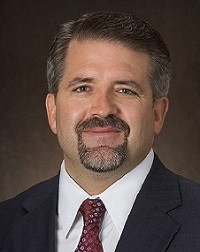学习是永远跟随主人的宝物。
Learning is a treasure that will follow its owner everywhere.
A Chinese Proverb
A visit to China, especially a first visit, is not one you can adequately prepare for. How do you prepare for a trip across 12 time zones? How do you prepare to lose an entire day in travel? How do you cope with an entirely new language, different culture, different worldview, perhaps even a hostile view of your culture? “Don’t eat the food, don’t drink the water, stay off the buses, avoid large crowds, don’t expect to find kindness, life is ‘hard’ in China …” There was more than enough advice from both the veterans and those who only have read about traveling to China. All of this advice merely formed more questions in my mind.
So, what did I take away from my first visit to the land of the Great Wall? What were the answers to my questions? Well, quite simply put, more questions, and a new-found appreciation for a culture completely different from my own, and an understanding that even 12 time zones don’t separate the basic common lives that we lead.
But there are differences. There are stark contrasts—material, emotional, and psychological contrasts. More dramatic contrasts than any I have experienced before. Imagine traveling across fertile farmland at 300 km/hr and watching a farmer just a few yards away plowing with oxen. Or, seeing hundreds of road workers constructing an eight-lane superhighway off in the distance as you trudge along avoiding knee-deep potholes in a two-track cart path barely wide enough for your small cargo van. Or perhaps, imagine driving through an urban area of more than 30 million people in bumper-to-bumper traffic on a six-lane highway, admiring the 70-story construction cranes building new apartments, as you pass under a bridge and notice numerous families with young children living in cardboard boxes. Yes, that’s right, more than 30 million people—and it does not even rank in the top ten most populous urban areas in China. It would be far and away the largest city in the US.
China is a land of contrasts.
Questions
I was blessed to have Julia[1] accompany me and help me acclimate. After the first few hours listening, viewing, smelling, and experiencing China, I quickly learned what it meant to be a stranger in a strange land. I was a “laowai”—a foreigner, an alien. But in spite of the ethnic and linguistic differences, I found that the differences become muted if you are looking for the similarities. This lesson that we are very much alike, forced me to ask “why?” Why is there such suspicion between our nations? Why is there so much talk about animus and hostility? Why are we so different?
I see men and women busily working to make a living. I see people in a hurry to get through traffic to make it to their destination. I see children learning how to live from the examples they see in the adults around them. I see teachers and school administrators busy trying to help their students learn. But, I also see corruption—one man taking advantage of another to get ahead, to make a little more money, to appear more important than the next guy. So, why do we think this is different from life here in America?
Common lives?
While we do indeed have our differences in language, in appearance, in worldview, we have far more common threads that draw us together than push us apart. We value family, we want the best for our families. We seek to improve our condition in life. We labor, we fear, we love, we cry, we succeed, we fail, we forgive, we hold grudges. And, we have the same need for compassion and we value honorable treatment and respect. So, why do I think this is different?
Appreciation
I gained a new appreciation for service and sacrifice. Julia taught me lessons of deep, self-less love— agape love—for children who do not fully realize that depth. Alvin taught me about the care and compassion that I long to see from men and women in my own homeland. Moses taught me how a man can take experiences from his own childhood as an orphan to quietly and steadily transform the lives of hundreds of children. Hannah taught me about faith and service and how to become “momma” to children who may not have one of their own.
I learned that the label a person wears has less value than the depth and demonstration of their faith.
I have often heard it said, “this is China.” I am now thankful to say I have experienced China—not all of the vast country, but just a sampling of the people, places, values, emotions, sights, sounds, smells—and I am better for it. And I am convinced, as the Chinese proverb says, that my lessons will follow me everywhere—and, hopefully, be transformed into action!
This post is adapted from “Learning” which was originally published on June 15, 2015 on the Chinese Agape Foundations blog.
Image credit: Jeff Robertson.

Jeffrey Robertson
Jeffrey Robertson is CEO of the Chinese Agape Foundation, a U.S. registered 501(c)3, whose mission is to provide orphanages, foster care, medical care, and education for abandoned and impoverished children of China. Jeff is a retired U.S. Coast Guard officer and also served as Assistant Commissioner of U.S. Customs and …View Full Bio
Are you enjoying a cup of good coffee or fragrant tea while reading the latest ChinaSource post? Consider donating the cost of that “cuppa” to support our content so we can continue to serve you with the latest on Christianity in China.